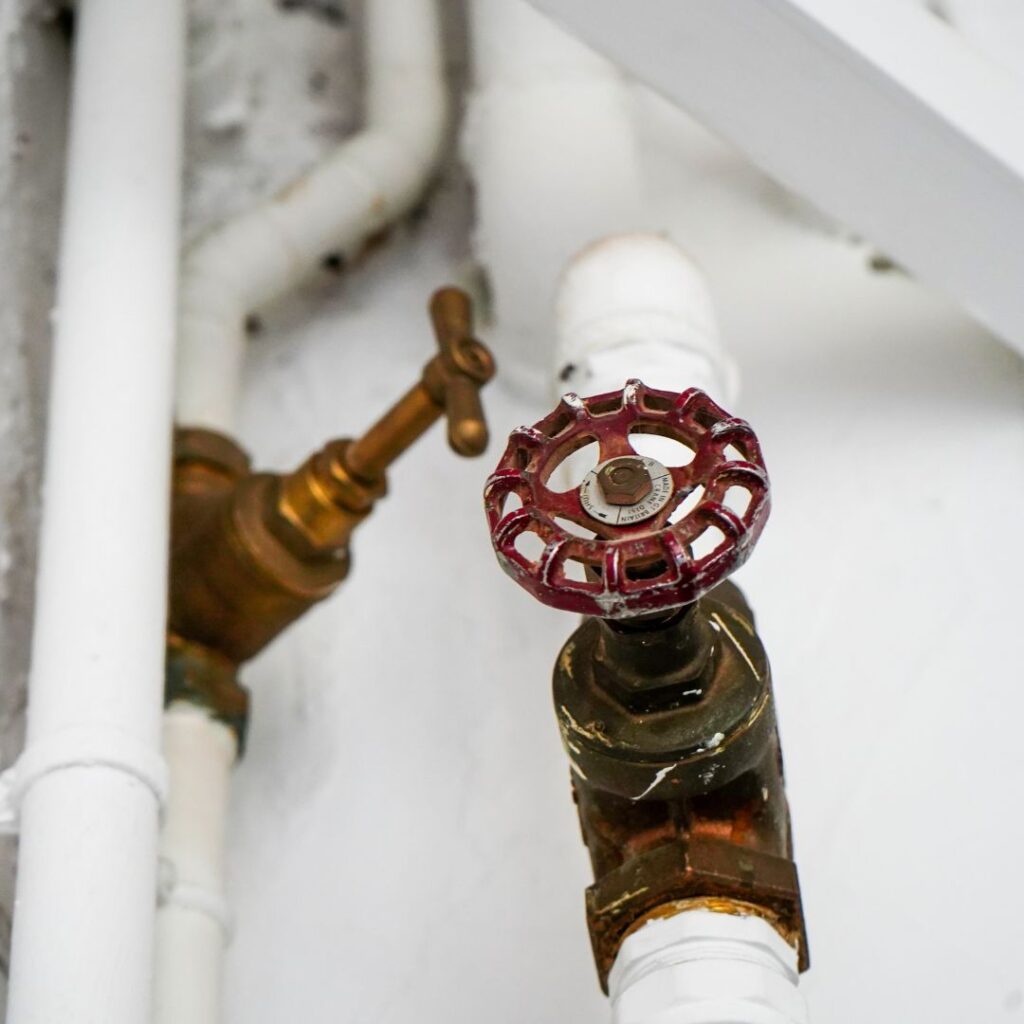Why Frozen Pipes in Michigan Are a Big Deal
If you live in Michigan, you know how brutal winters can get. But while you’re dealing with snow and icy roads, there’s another problem you don’t want to ignore: frozen pipes. It’s not just a hassle—it’s a fast track to expensive repairs and water damage. In this article, we’ll discuss why frozen pipes in Michigan are a big deal, including what frozen pipes can do to your home, why pipes freeze and how to stop it from happening.
Pipes freeze when temperatures drop below 32°F. The water inside turns to ice, expands, and puts enough pressure on the pipe to cause it to crack or burst. Pipes in unheated areas like basements, garages, and exterior walls are especially at risk.


Why do pipes in Michigan freeze?
- Michigan winters are no joke, and extended freezing temperatures push plumbing systems to their limits.
- Poorly insulated pipes don’t stand a chance against the cold.
- Turning down the thermostat at night or while you’re away can make it easier for pipes to freeze.
- When the temperature drops suddenly, pipes don’t get a chance to adjust, and that’s when the trouble starts.
Why are frozen pipes a big deal?
- Water stops flowing. If ice blocks the pipe, you can forget about that morning shower.
- The ice expands, and if it has nowhere to go, the pipe cracks or bursts.
- Burst pipes mean flooding, and flooding means damage to your floors, walls, and whatever else is in the way.
If you’re experiencing flooding in your home, Zeppelin is here to help with our emergency flood cleanup services.
So, how do you stop this from happening?
- Wrap up exposed pipes with foam insulation or heating tape.
- Seal up drafts around windows, doors, or pipe entry points to keep the cold air out.
- Keep the thermostat steady—even when you’re not home. Keep the temperature up.
- Let a faucet drip. A little movement in the pipes can go a long way in preventing freezing.
- Open cabinet doors under sinks so warm air can circulate around pipes near exterior walls.
What should you do if your pipes freeze?
- Turn off the water at the main shutoff to avoid flooding if the pipe bursts.
- Open the faucet on the affected pipe to let water escape as the ice melts.
- Gently warm the pipe with a hairdryer, space heater, or heating pad. Don’t even think about using an open flame.
- Once the pipe is thawed, check for leaks or cracks. If you find damage, call Zeppelin ASAP.
Here’s an emergency kit you should keep on hand for frozen pipe situations:
- Pipe insulation or heating tape
- Portable space heater
- Water shutoff key
- Flashlights and batteries (because winter storms love to take out power)
- Towels and buckets for any leaks
- Zeppelin’s phone number, (313) 731-0025, we’re available 24/7 for flood damage cleanup
Frozen pipes in Michigan are a big deal, but they don’t have to be a disaster. A little preparation goes a long way. If you do end up with a frozen pipe, don’t mess around—get it fixed right. Get in touch with Zeppelin and save yourself the bigger headache later.
